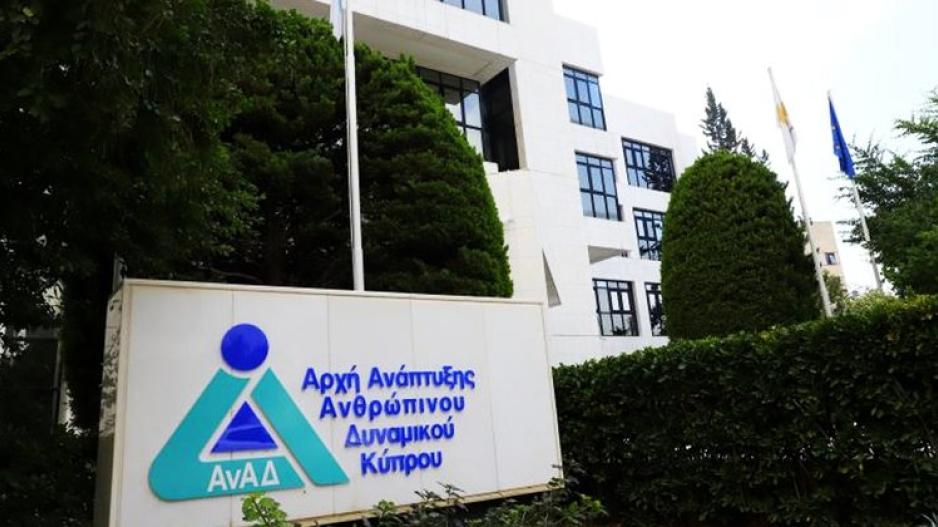HRDA Invests Over €100 Million in Training Programs Over the Past Five Years
Enhancing Skills and Knowledge for 275,000 Participants Across 30,500 Programs, HRDA Celebrates 45 Years of Impactful Workforce Development in Cyprus
In the past five years alone, 275,000 individuals participated in 30,500 training programs by the Human Resource Development Authority (HRDA), with a total expenditure of €102.3 million for training activities, stated Dimitris Kittenis, Chairman of the HRDA Board of Directors, during a press conference celebrating the 45th anniversary of HRDA.
Mr. Kittenis mentioned that throughout its 45-year journey, HRDA has remained dedicated to its mission and contribution to economic growth by enhancing the knowledge and skills of the workforce and maximizing their effective utilization by businesses and organizations.
He also stated that within the framework of Cyprus' Recovery and Resilience Plan (2021-2026), HRDA, as the implementing body for training programs for employees and the unemployed, is undertaking projects for acquiring digital skills and knowledge, and skills related to the green economy, blue economy, and entrepreneurship.
He highlighted that the transition to the green and blue economy, the increasing use of new technologies, automation, artificial intelligence, and new forms of work, significantly impact the required knowledge and skills of professions.
"As the working environment in all sectors evolves, HRDA invests in the future of Cyprus' workforce," said Mr. Kittenis, explaining that it contributes to integrating the unemployed and inactive workforce into employment with focused training actions for active employment support and unemployment reduction, and it also promotes lifelong learning for employees to continuously upgrade and enrich their knowledge and skills to adapt to ever-changing conditions.
According to Mr. Kittenis, in the past five years alone, 275,000 individuals participated in 30,500 training programs by HRDA, with a total expenditure of €102.3 million for training activities. Additionally, 4,100 individuals were certified in Professional Qualifications, and 390 Centers and 650 Vocational Training Structures were accredited.
Mr. Kittenis also mentioned the importance of HRDA's studies, such as labor demand and supply forecasts in the Cypriot economy (2022-2032), employment and training needs research, and the long-term trends of human resource indicators in Cyprus.
He stated that HRDA continuously seeks cooperation and exchange of experiences with other European and international organizations on training and human resource development issues, such as the European Network for Vocational Education and Training (ReferNet), for which HRDA was the National Coordinator from 2003 to 2023, and the "European network for the timely identification of skill needs" (Skillsnet).
Mr. Kittenis noted that over its 45-year history, HRDA has contributed to upgrading the knowledge, skills, and abilities of Cyprus' workforce, increasing productivity, and enhancing the competitiveness of businesses and organizations.
He pointed out that the Cyprus Industrial Training Authority, as HRDA was initially named, was established in 1974, just before the tragic events of the Turkish invasion, and started operating in 1979. "That's why we are celebrating 45 years of operation this year and not 50 years of establishment," Mr. Kittenis explained, adding that on November 1, 1999, a new law renamed it the Human Resource Development Authority of Cyprus (HRDA).
He added that HRDA's law provides for its administration by a tripartite Board of Directors, consisting of four government representatives, four employer representatives, and four union representatives, with a President appointed by the Council of Ministers. He noted that the tripartite nature of HRDA's Board, as well as the various committees established by the Board, has significantly contributed to HRDA's successful journey from its inception in 1979 to the present. "This tripartite nature of the Board must be preserved as a precious asset," Mr. Kittenis emphasized, noting that efforts are being made to change the tripartite nature of the Board.
Looking back at HRDA's operation, Mr. Kittenis said that HRDA developed the first vocational training programs to upgrade the knowledge and skills of the workforce and provided grants to businesses for training their personnel.
He added that during the 1990s and 2000s, HRDA closely monitored the ongoing evolution and shaping of the Cypriot economy, adjusting its activities to the development of tourism, the rapid expansion of the services sector, and the introduction of technology into businesses.
He pointed out that HRDA's contribution to research and studies is also significant, as its studies examine issues concerning the workforce in various economic sectors and evaluate the offered programs to shape strategies and specific policies in training and development.
He further noted that Cyprus' accession to the European Union created the field for the rapid development of foreign trade, shipping, and investments, as well as the modernization of the institutional framework for the business environment.
"HRDA recognizes that diverse knowledge and skills are essential for the future and that continuous readjustment of individuals' knowledge and skills is necessary," he said, adding that "this is why HRDA introduces special training programs that promote the adaptation of the workforce to new innovations, responding promptly to the training needs of the workforce in an increasingly competitive environment."
Mr. Kittenis stated that adapting national human resource development systems to both local conditions and international and European developments is imperative, which is why HRDA operates the Training Provider Evaluation and Certification System and the Professional Qualifications System (PQS) in an effort to enhance the quality of the human resource training system.
He also stated that after the 2013 economic crisis, HRDA operated new co-financed projects with the European Social Fund and HRDA, for placing unemployed young graduates from tertiary and secondary education into businesses and organizations to gain work experience.
He added that HRDA contributed to integrating the unemployed into employment by operating schemes that provided incentives for businesses to employ and train long-term unemployed individuals, while offering training opportunities with their free participation in multi-company training programs implemented by Vocational Training Centers (VTCs).
Additionally, Mr. Kittenis continued, HRDA provided training programs for young graduates of tertiary education schools to improve the organization and management of businesses and organizations through staffing and training of new graduates, as well as their smooth integration into suitable job positions.
He also noted that changes in the labor market followed, including with the COVID-19 pandemic, which, despite its negative consequences, created new possibilities, such as the acceleration of progress for remote training using technology and communications.
On the sidelines of the press conference, a photography exhibition was also presented, celebrating the 45 years of HRDA's operation.






